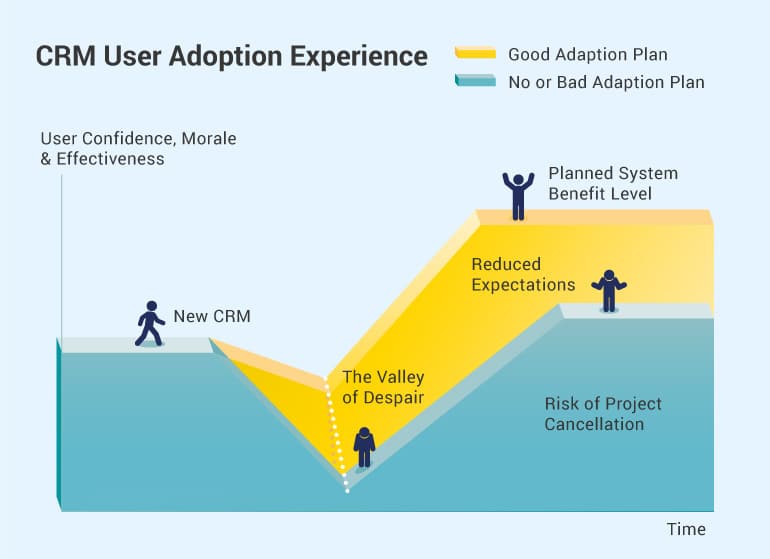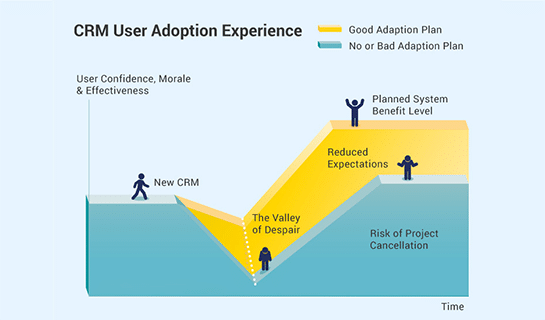4 Reasons for Low CRM User Adoption Rates
By now, most professionals in the sales and service fields are well aware of the basic benefits of Customer Relationship Management. Unfortunately, actually getting your employees to use it is an entirely different beast. The fact is, people, don’t like change. And when it comes to CRM adoption, there may be many reasons why salespeople resist.

- Control
Some sales reps may feel a loss of control. They’ve done their job a specific way for many years, which has garnered them a great deal of success. The adage “If it ain’t broke, why fix it?” comes to mind. In this case, it’s important to think with the end-user in mind, then let the salespeople know what’s in it for them. This could be increased efficiency, closing sales faster, and making more money in less time. It’s also a good idea to involve sales teams in the planning and implementation process of the new CRM system from the very beginning, providing them a sense of ownership in the success of the project. - Competence
Others may experience concerns about their own level of competence. They may express skepticism about whether the new system will work or whether it will offer any improvement, but deep down they may be worried that their skills will become obsolete. For this reason, management should first identify the needs of each group of stakeholders within the organization, then commit to providing a wealth of education, training, and support for those that need it. - Overwhelm
Some salespeople may feel that entering information into a CRM system is just one more thing to add to their already long to-do list. In fact, change can often require more work on the front end, as there will likely be a learning curve while getting to know the new system, resulting in a dip in productivity, known as ‘the valley of despair’. However, it’s vital to stress that once the CRM system is in place and everyone is trained on how to use it, the sales team’s jobs will suddenly get a little bit easier, thanks to data that’s more up to date and easy to find. Moreover, the days of manual reporting are gone. - Uncertainty
You know what they say, “Better the devil you know than the devil you don’t know.” Many people would rather suffer through using inefficient systems, such as tracking their sales in Excel spreadsheets, than to take the chance on a new way of doing things that may or may not pan out. To overcome this fear of the unknown, management should present a clear vision for what the sales department should look like once the change has been implemented, and create a sense of certainty by laying out the entire CRM implementation process, with a clear timeline and milestones for completion.
The amount of planning put into the user adoption process is directly correlated to the return on investment realized from any software implementation. In order for your CRM project to be successful, your sales team must actually use it. However, you must first get over a few hurdles that make employees naturally resistant to change, as well as follow a proven framework for fostering full-scale end-user adoption within your sales organization.
If you would like to learn more about realizing full-scale CRM user adoption, we recommend using our User Adoption Playbook to guide your users to effectively embrace change and communicate the value of implementing a CRM.



